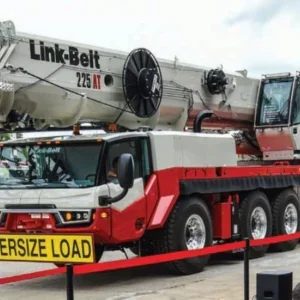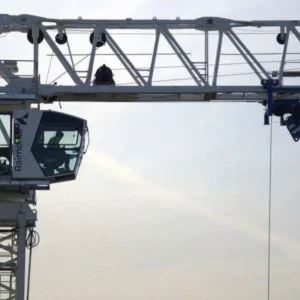The Crane Rental Association of Canada (CRAC) held its fourth annual conference in the stunning surroundings of Halifax, Nova Scotia in June. The association is still young and its ideas are refreshing. For chairman Alan Swagerman, it was to be his last conference chairing the association, he stepped down at the end of the event. ‘We have a three year rotation of directors and chairmen’ he says. ‘It means people move around and everyone gets a chance.’ Swagerman was a founder member of the association, which has almost doubled in size since its birth in 1997, from 150 to nearly 300 this year.
The most notable thing about CRAC is that it seems more like a social club than a trade association. ‘The social aspect plays a big part,’ admits Swagerman. ‘Even though we are rivals, we all help each other and share information at times.’
It is not unusual for members to help each other with repairs, spare parts and general advice. A reason for this, perhaps, is a lack of direct competition between rental companies. ‘People do not really compete because of the distance,’ says Swagerman, ‘and everyone has their own little patch.’
Swagerman says that another purpose of CRAC is to educate its members. At the conference there were seminars led by the crane manufacturers. Link-Belt’s parts marketing manager Michael Bunch spoke on how the internet can help your business; and Manitowoc national sales manager Bruce Buchan, Grove vice president Bob Hixon and Demag sales manager Christian Schoor discussed product and corporate developments within their companies. There were also sessions on fall protection and a 3D crane simulator.
As with any association, CRAC also provides a national voice for the industry, although opportunities here are limited by the devolved nature of Canadian government, with different laws and regulations in different provinces. There are territorial associations to address the regional issues that arise from regional laws.
CRAC prides itself on its independence. ‘It is written into our constitution that we will not make demands on manufacturers or accept donations from manufacturers,’ says Swagerman. Membership fees pay for the annual conferences and Swagerman says that members ‘unanimously voted against sponsorship.’
The day job
Taking over as chairman of CRAC is Rob Magee of Gwil Crane Service. This means Swagerman will be able to concentrate fully on his ‘real’ job – general manager of Irving Equipment. Irving has nine branches across Canada and has a fleet of 140 cranes, on top of other equipment such as trailers, barges and tugs. The cranes in the fleet range have lifting capacities ranging from 8t to 750t.
The rental industry in Canada is divided into the west and east sides of the country, and they are completely different from each other, Swagerman says. In the west, work is plentiful. The discovery of oil sand in Alberta has led to work for crane companies and there are several big projects planned. The energy shortage in the USA has also led to extra work as Canadian power stations boost output for export. Toronto’s bid to host the Winter Olympics, if successful, will also provide the rental companies of the west with work.
On the eastern side of the country the picture is rather different. ‘We are starting to hurt a little,’ says Swagerman. ‘There has just been a big high last year and we are now entering a low period.’
This cycle of peaks and troughs is a regular feature, according to Mike Marsh, Irving’s regional manager for Nova Scotia. ‘It’s like this all the time,’ he says. ‘We are in a quiet period now, but next year will be big. There are lots of gas fields off the east coast to be tapped into but that will take two to three years to get going.’ In the meantime, Irving’s east coast division is keeping busy with construction work in and around Nova Scotia, including work at an Esso refinery.






